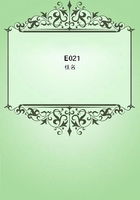
第40章
Romeo, if dead, should be cut up into little stars to make the heavens fine. Life, with this pair, has no other aim, asks no more, than Juliet, -- than Romeo. Night, day, studies, talents, kingdoms, religion, are all contained in this form full of soul, in this soul which is all form. The lovers delight in endearments, in avowals of love, in comparisons of their regards. When alone, they solace themselves with the remembered image of the other. Does that other see the same star, the same melting cloud, read the same book, feel the same emotion, that now delight me? They try and weigh their affection, and, adding up costly advantages, friends, opportunities, properties, exult in discovering that willingly, joyfully, they would give all as a ransom for the beautiful, the beloved head, not one hair of which shall be harmed. But the lot of humanity is on these children. Danger, sorrow, and pain arrive to them, as to all. Love prays. It makes covenants with Eternal Power in behalf of this dear mate. The union which is thus effected, and which adds a new value to every atom in nature, for it transmutes every thread throughout the whole web of relation into a golden ray, and bathes the soul in a new and sweeter element, is yet a temporary state. Not always can flowers, pearls, poetry, protestations, nor even home in another heart, content the awful soul that dwells in clay. It arouses itself at last from these endearments, as toys, and puts on the harness, and aspires to vast and universal aims. The soul which is in the soul of each, craving a perfect beatitude, detects incongruities, defects, and disproportion in the behaviour of the other. Hence arise surprise, expostulation, and pain. Yet that which drew them to each other was signs of loveliness, signs of virtue; and these virtues are there, however eclipsed. They appear and reappear, and continue to attract; but the regard changes, quits the sign, and attaches to the substance. This repairs the wounded affection. Meantime, as life wears on, it proves a game of permutation and combination of all possible positions of the parties, to employ all the resources of each, and acquaint each with the strength and weakness of the other.
For it is the nature and end of this relation, that they should represent the human race to each other. All that is in the world, which is or ought to be known, is cunningly wrought into the texture of man, of woman.
"The person love does to us fit, Like manna, has the taste of all in it."
The world rolls; the circumstances vary every hour. The angels that inhabit this temple of the body appear at the windows, and the gnomes and vices also. By all the virtues they are united. If there be virtue, all the vices are known as such; they confess and flee.
Their once flaming regard is sobered by time in either breast, and, losing in violence what it gains in extent, it becomes a thorough good understanding. They resign each other, without complaint, to the good offices which man and woman are severally appointed to discharge in time, and exchange the passion which once could not lose sight of its object, for a cheerful, disengaged furtherance, whether present or absent, of each other's designs. At last they discover that all which at first drew them together,---- those once sacred features, that magical play of charms, -- was deciduous, had a prospective end, like the scaffolding by which the house was built; and the purification of the intellect and the heart, from year to year, is the real marriage, foreseen and prepared from the first, and wholly above their consciousness. Looking at these aims with which two persons, a man and a woman, so variously and correlatively gifted, are shut up in one house to spend in the nuptial society forty or fifty years, I do not wonder at the emphasis with which the heart prophesies this crisis from early infancy, at the profuse beauty with which the instincts deck the nuptial bower, and nature, and intellect, and art emulate each other in the gifts and the melody they bring to the epithalamium.
Thus are we put in training for a love which knows not sex, nor person, nor partiality, but which seeks virtue and wisdom everywhere, to the end of increasing virtue and wisdom. We are by nature observers, and thereby learners. That is our permanent state. But we are often made to feel that our affections are but tents of a night. Though slowly and with pain, the objects of the affections change, as the objects of thought do. There are moments when the affections rule and absorb the man, and make his happiness dependent on a person or persons. But in health the mind is presently seen again, -- its overarching vault, bright with galaxies of immutable lights, and the warm loves and fears that swept over us as clouds, must lose their finite character and blend with God, to attain their own perfection. But we need not fear that we can lose any thing by the progress of the soul. The soul may be trusted to the end. That which is so beautiful and attractive as these relations must be succeeded and supplanted only by what is more beautiful, and so on for ever.